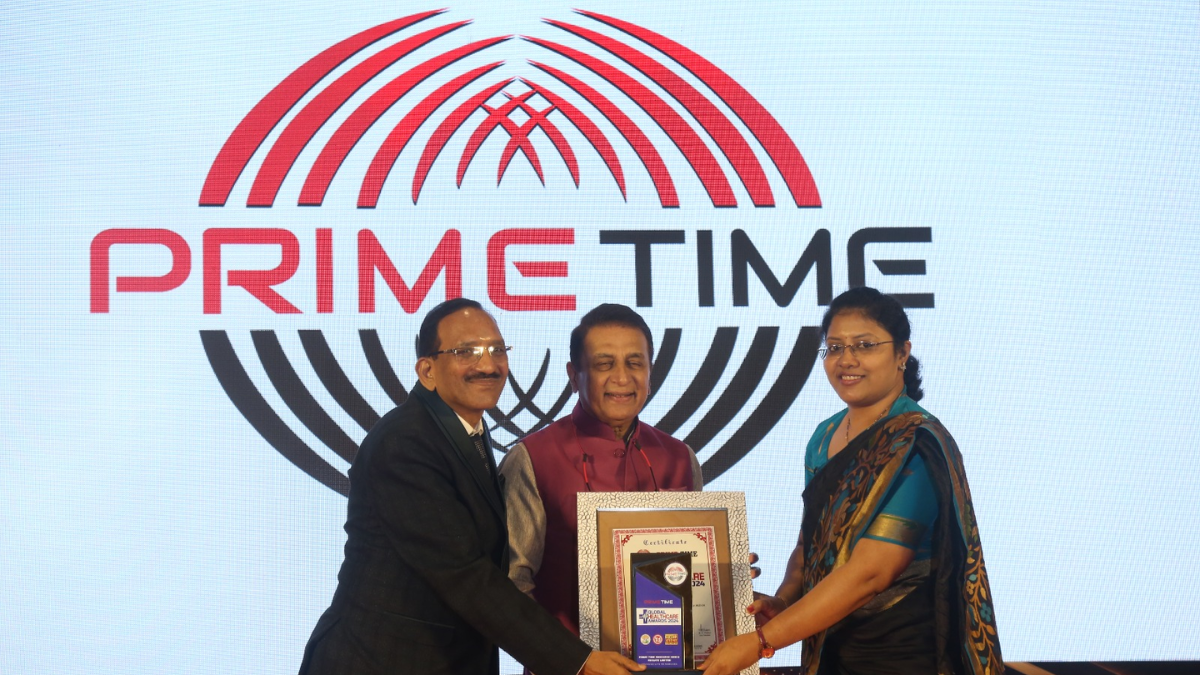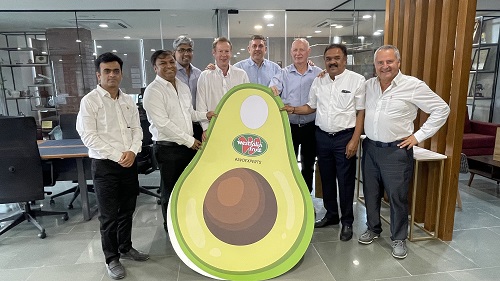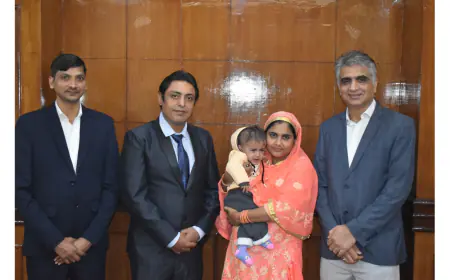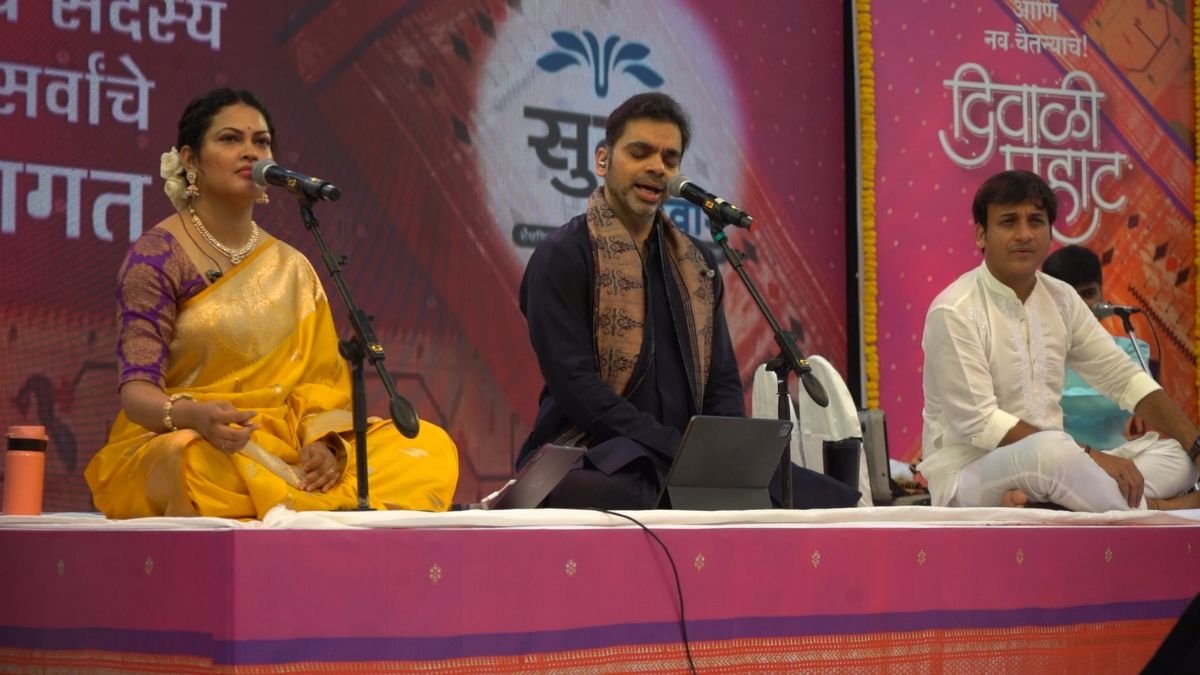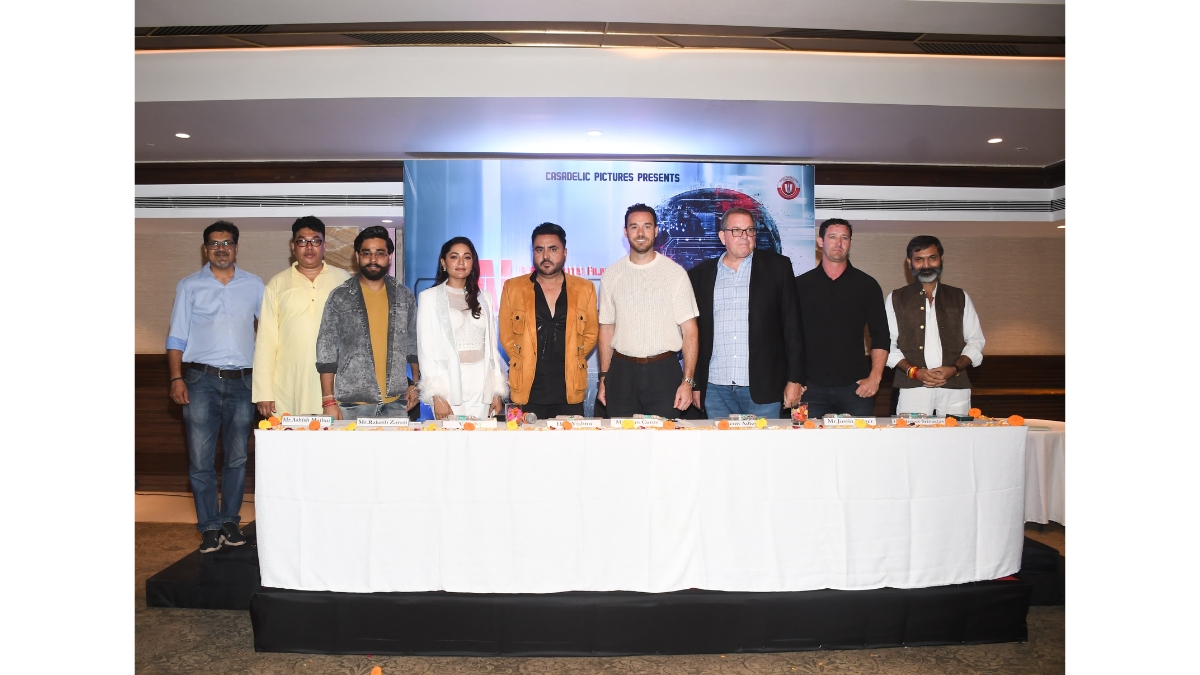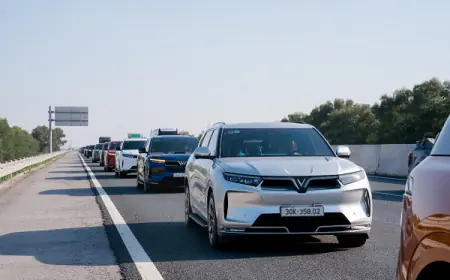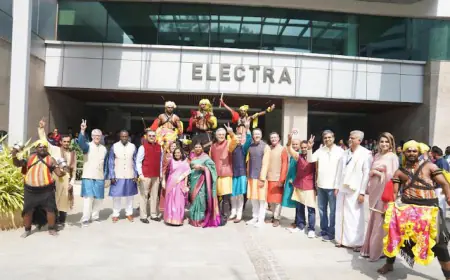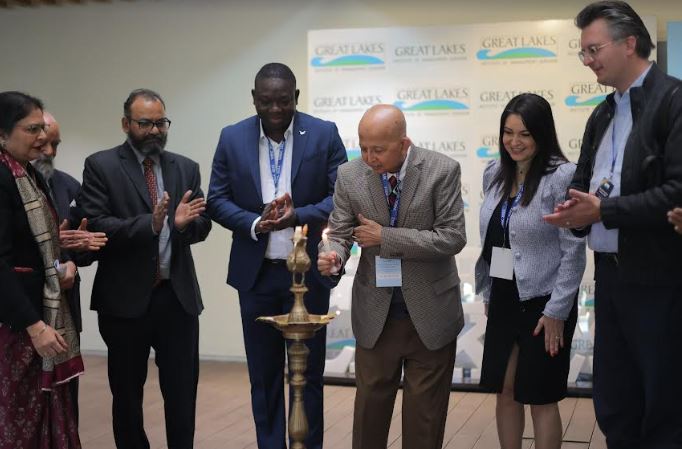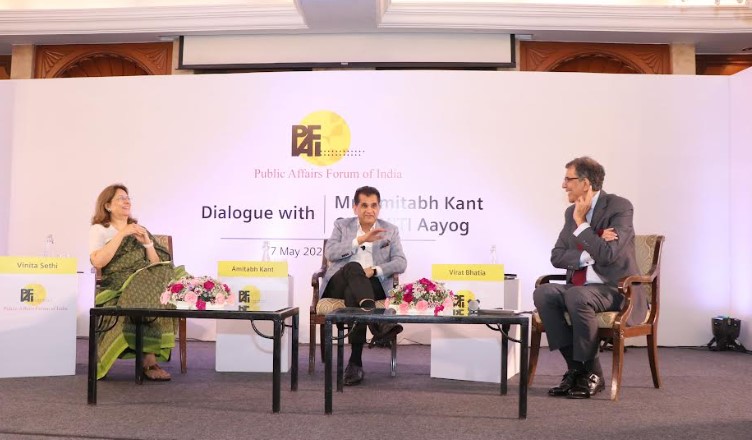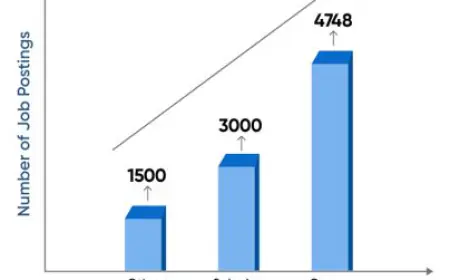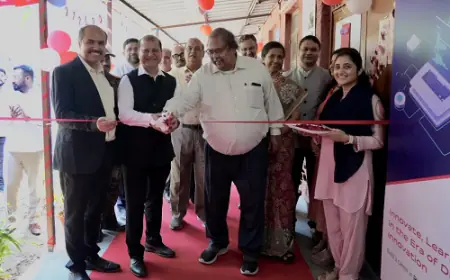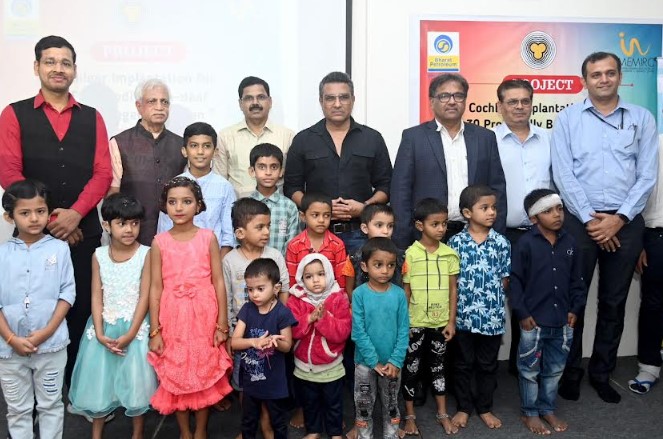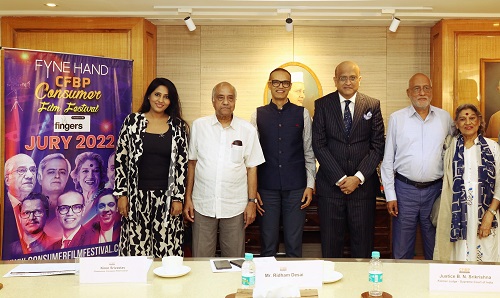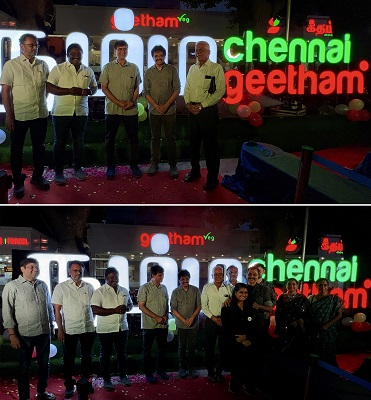Experts Recommend Strict Adherence to Electrical Standards and Regular Inspection to Avoid Electrical Mishaps
Every day in India, 11 people die due to fatal electrical accidents. As per the Central Electricity Authority (CEA) data, a total of 10,022 electrical accidents were reported in India between 2019 - 2020 and 55% of these electrical accidents can be attributed to low voltage electrical installations. On one hand, India is one of the fastest growing nations but on the other hand, statistics like these showcase a grim reality about the apparent negligence towards electrical safety. These were some of the key observations made by the experts at a technical session on 'Electrical Safety at Residential, Commercial and Public Buildings' in New Delhi, which was organized by the International Copper Association (ICA) India in collaboration with Bureau of Indian Standards (BIS). Dignitaries at the 6th session on "Electrical Safety at Residential, Commercial and Public Buildings", organized by International Copper Association (India) in Delhi on Wednesday The topics addressed during the session ranged from role of standardization and periodic inspections to role of wires & cables and transformers in mitigating the incidences of electrical accidents in buildings, earthing and lightening protection were also discussed. The objective of the session was to accelerate electrical safety amongst key constituents of building industry and industry stakeholders with compliance of the Indian Standards, Regulations & Codes. Mr. Ashok Kumar Rajput, Member (Power System), CEA, Ministry of Power, Ex-officio Additional Secretary to the Government of India said, "Electrical installations and safety is a neglected area. With the compromise on quality, the sustenance of buildings and their long-term performance is also compromised. Additionally, maintenance and workmanship should also go hand in hand along with the use of quality products. Only licensed electrical contractors should be allocated on building projects. There should be accountability for all electrical installation, in the absence of which, CEA should be notified." Adding to the discussion, Ms. Priti Bhatnagar, Head - Electro Technical Division, Bureau of Indian Standards (BIS) said, "To address electrical safety related challenges, it is necessary to follow the codes & standards laid out by BIS including National Electrical Code of India (NEC), IS 732, etc. We also need to ensure improved root cause analysis of electrical hazards and apply those learnings at the planning stage of electrical installations in buildings. These measures will restrict electrical fire incidents in future." Elaborating on the subject Mr. Amol C. Kalsekar, Chief Manager, International Copper Association India (ICA India) said, "Electrical mishaps in most of the buildings are caused by the wrong selection of wire and cables. According to cable performance study conducted on 5-to-30-year-old commercial buildings, aluminum cables in comparison (vis-a-vis copper cables) were found to have issues such as overheating, oxidization, hot spots, termination clearance, expansion and contraction cycle, etc. highlighting a risk associated with short circuits and thereby, electrical accidents." Some of the major causes of fatal electrical accidents are inefficient circuit planning in residential as well as commercial buildings, under sizing and inferior quality of wires and lack of periodic electrical inspection. In order to tackle these issues, the Government of India has introduced various electrical standards, codes and regulations but lack of adherence to the code by relevant stakeholders, as well as lack of understanding among the end users has led us to this inopportune state. To address this impending issue ICA India, in association with BIS and with the support of its product council members i.e., Anchor by Panasonic, Finolex, KEI, RR Kabel and V Guard laid the foundation of 'Zero Tolerance' initiative in 2018. The key idea is to drive better cognizance among the larger community about the key shortcomings in electrical safety and ways to transition to a safer nation by accelerating adoption of electrical safety standards and compliances for a safer future. ICA India is a leading advocate for electrical safety on behalf of the copper industry in India, aligned to the government's goal of transforming into a developed nation by 2047 and electrical safety in commercial and residential buildings is a very important element for the fulfilment of this vision. In line with its commitment to this development goal, ICA India trains around 10,000 electricians and electrical contractors by conducting nearly 200 seminars and workshops annually on 'Safe Electrical Installation Practices' with the support of its product council members. The results of a validation study analysing the impact on total construction cost by using quality cables in residential an
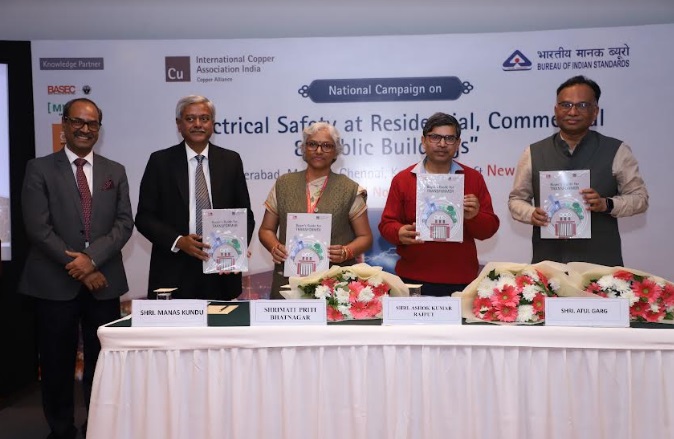
Every day in India, 11 people die due to fatal electrical accidents. As per the Central Electricity Authority (CEA) data, a total of 10,022 electrical accidents were reported in India between 2019 - 2020 and 55% of these electrical accidents can be attributed to low voltage electrical installations. On one hand, India is one of the fastest growing nations but on the other hand, statistics like these showcase a grim reality about the apparent negligence towards electrical safety. These were some of the key observations made by the experts at a technical session on 'Electrical Safety at Residential, Commercial and Public Buildings' in New Delhi, which was organized by the International Copper Association (ICA) India in collaboration with Bureau of Indian Standards (BIS).
 |
Dignitaries at the 6th session on "Electrical Safety at Residential, Commercial and Public Buildings", organized by International Copper Association (India) in Delhi on Wednesday
The topics addressed during the session ranged from role of standardization and periodic inspections to role of wires & cables and transformers in mitigating the incidences of electrical accidents in buildings, earthing and lightening protection were also discussed. The objective of the session was to accelerate electrical safety amongst key constituents of building industry and industry stakeholders with compliance of the Indian Standards, Regulations & Codes.
Mr. Ashok Kumar Rajput, Member (Power System), CEA, Ministry of Power, Ex-officio Additional Secretary to the Government of India said, "Electrical installations and safety is a neglected area. With the compromise on quality, the sustenance of buildings and their long-term performance is also compromised. Additionally, maintenance and workmanship should also go hand in hand along with the use of quality products. Only licensed electrical contractors should be allocated on building projects. There should be accountability for all electrical installation, in the absence of which, CEA should be notified."
Adding to the discussion, Ms. Priti Bhatnagar, Head - Electro Technical Division, Bureau of Indian Standards (BIS) said, "To address electrical safety related challenges, it is necessary to follow the codes & standards laid out by BIS including National Electrical Code of India (NEC), IS 732, etc. We also need to ensure improved root cause analysis of electrical hazards and apply those learnings at the planning stage of electrical installations in buildings. These measures will restrict electrical fire incidents in future."
Elaborating on the subject Mr. Amol C. Kalsekar, Chief Manager, International Copper Association India (ICA India) said, "Electrical mishaps in most of the buildings are caused by the wrong selection of wire and cables. According to cable performance study conducted on 5-to-30-year-old commercial buildings, aluminum cables in comparison (vis-a-vis copper cables) were found to have issues such as overheating, oxidization, hot spots, termination clearance, expansion and contraction cycle, etc. highlighting a risk associated with short circuits and thereby, electrical accidents."
Some of the major causes of fatal electrical accidents are inefficient circuit planning in residential as well as commercial buildings, under sizing and inferior quality of wires and lack of periodic electrical inspection. In order to tackle these issues, the Government of India has introduced various electrical standards, codes and regulations but lack of adherence to the code by relevant stakeholders, as well as lack of understanding among the end users has led us to this inopportune state.
To address this impending issue ICA India, in association with BIS and with the support of its product council members i.e., Anchor by Panasonic, Finolex, KEI, RR Kabel and V Guard laid the foundation of 'Zero Tolerance' initiative in 2018. The key idea is to drive better cognizance among the larger community about the key shortcomings in electrical safety and ways to transition to a safer nation by accelerating adoption of electrical safety standards and compliances for a safer future.
ICA India is a leading advocate for electrical safety on behalf of the copper industry in India, aligned to the government's goal of transforming into a developed nation by 2047 and electrical safety in commercial and residential buildings is a very important element for the fulfilment of this vision. In line with its commitment to this development goal, ICA India trains around 10,000 electricians and electrical contractors by conducting nearly 200 seminars and workshops annually on 'Safe Electrical Installation Practices' with the support of its product council members.
The results of a validation study analysing the impact on total construction cost by using quality cables in residential and commercial buildings along with the risk related to safety & reliability indicated that wires & cables represent on an average only 1.1% of the total construction cost for commercial buildings and 1.6% for most residential buildings. Using good quality copper cables with higher conductivity will add an additional average cost of only 0.5% for commercial buildings & 0.6% for residential buildings but gives a significant perceived benefit of safety & reliability in the longer run.
The technical session garnered interest and saw participation from over 60+ professionals, an eclectic mix of Electrical Consultants, A Grade Electrical Contractors, Developers & Builders Electrical Engineers, Architects, representatives from CEA, CPWD, Metro Rail Authority, Electrical Inspectorate, Electric supply companies and various Industry Stakeholders under one roof. The interactive sessions between various stakeholders established the platform for discussion on the need for adoption of 'zero tolerance' towards electrical accidents.
About ICA India (International Copper Association)
The International Copper Association India (ICA India) is a member of Copper Alliance and the Indian arm of the International Copper Association Limited (ICA), the leading not for profit organization for the promotion of copper worldwide set up in 1959. ICA has been operating since 1998 in India and has built an active association with the growing number of copper users through its programs. ICA India Programs are committed to improving the quality of life through better Electrical Safety, Energy Efficiency, Clean Energy and Sustainability. ICA India's efforts have been pivotal to advancing better standards, across various products, applications and industries, by leveraging upon the superior technical performance of Copper.
![]()










